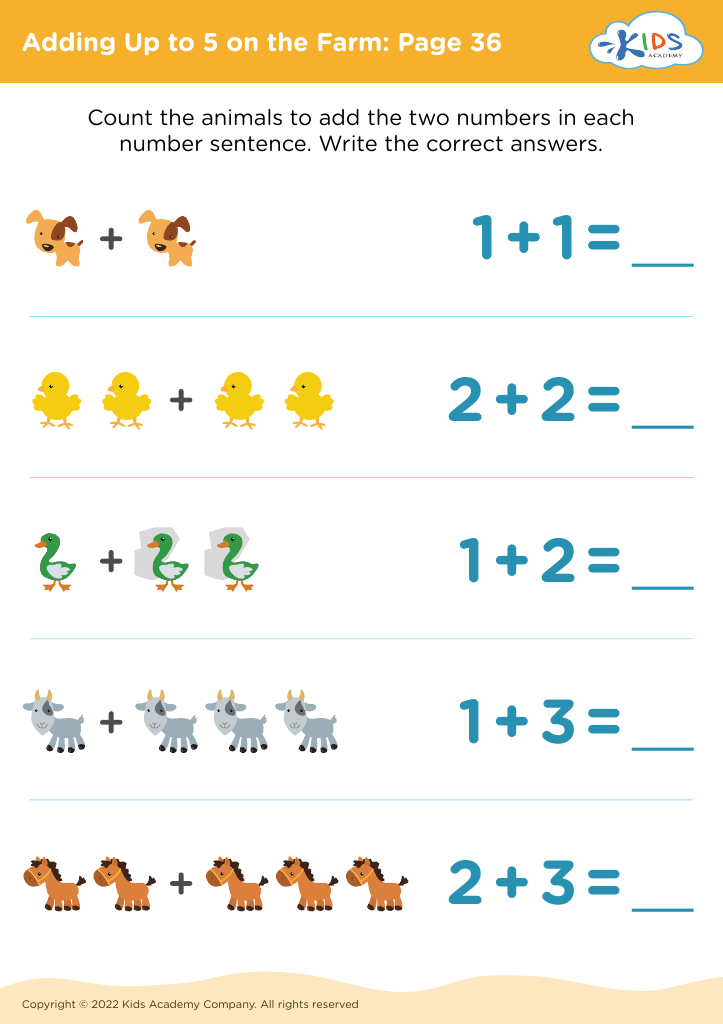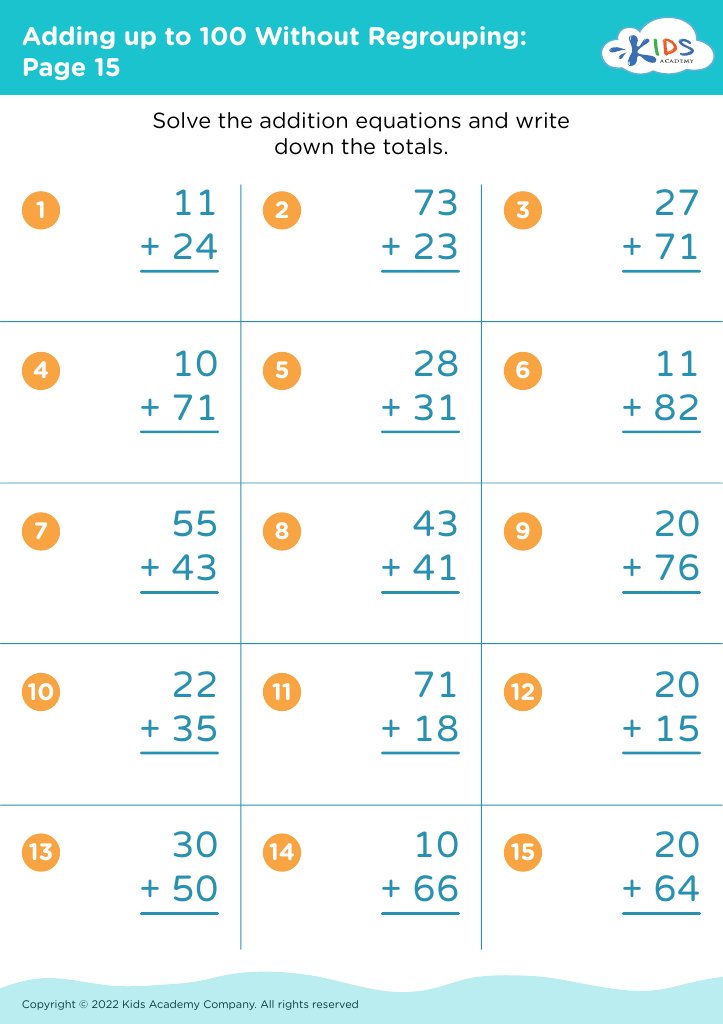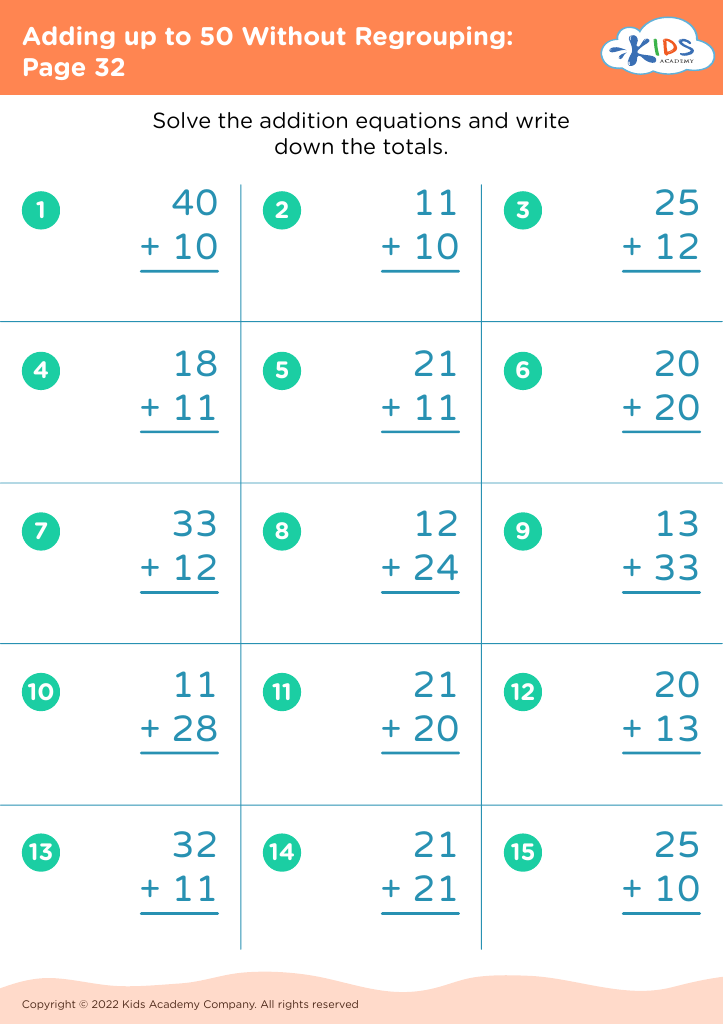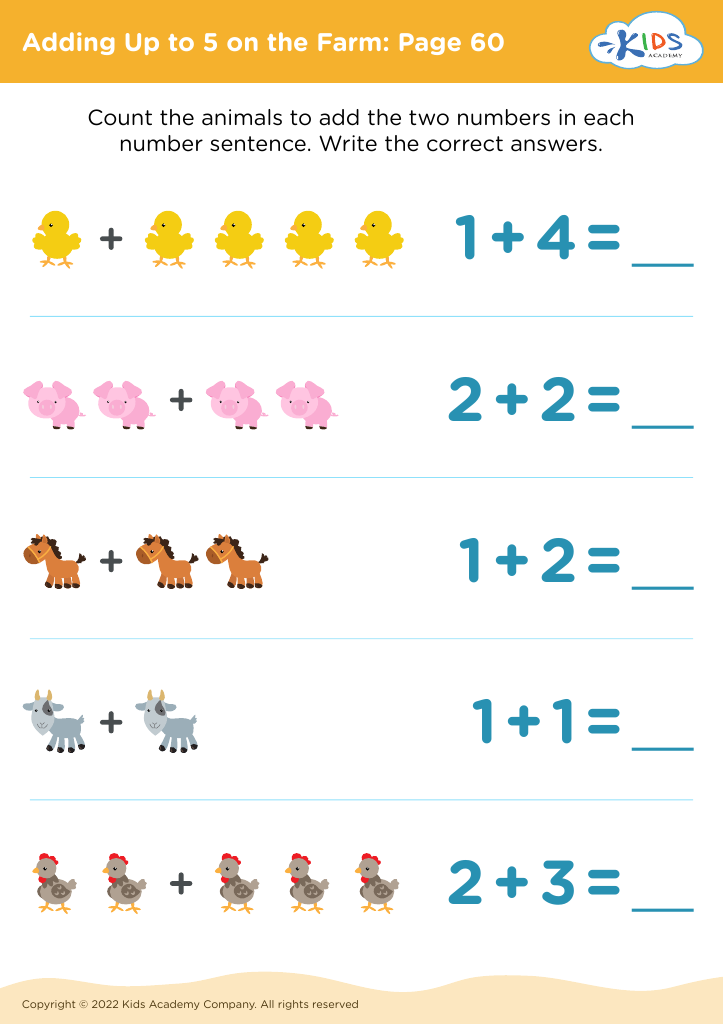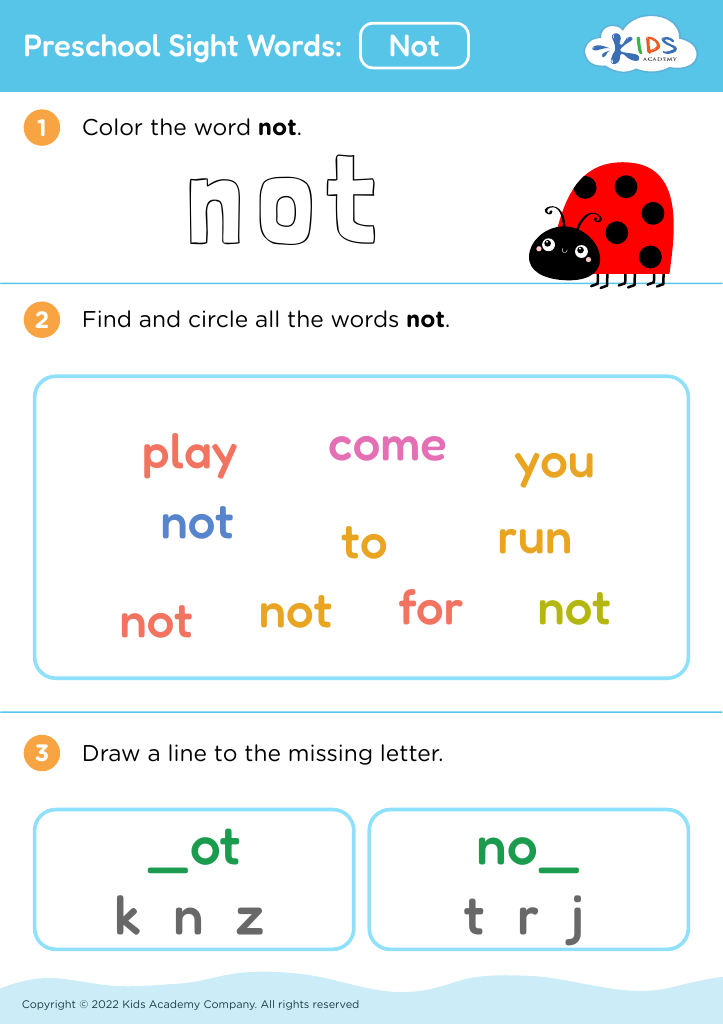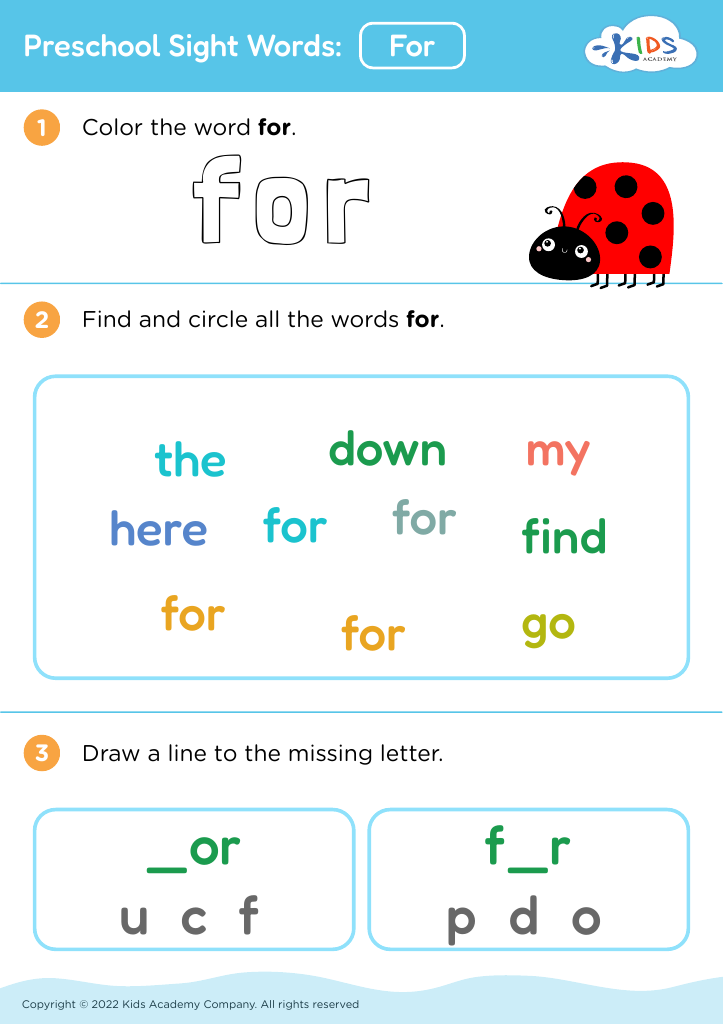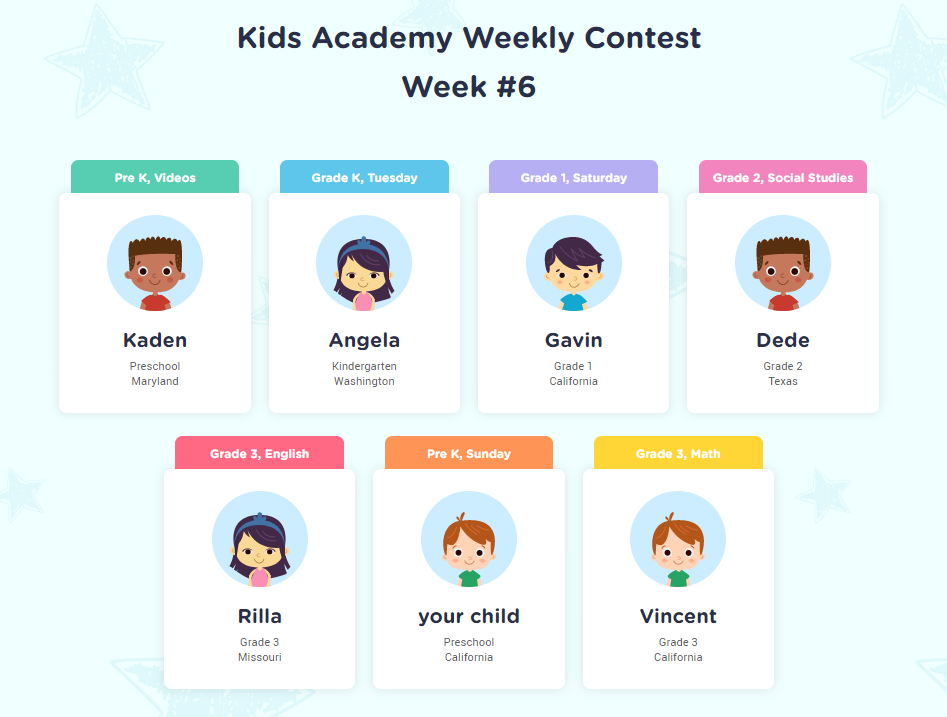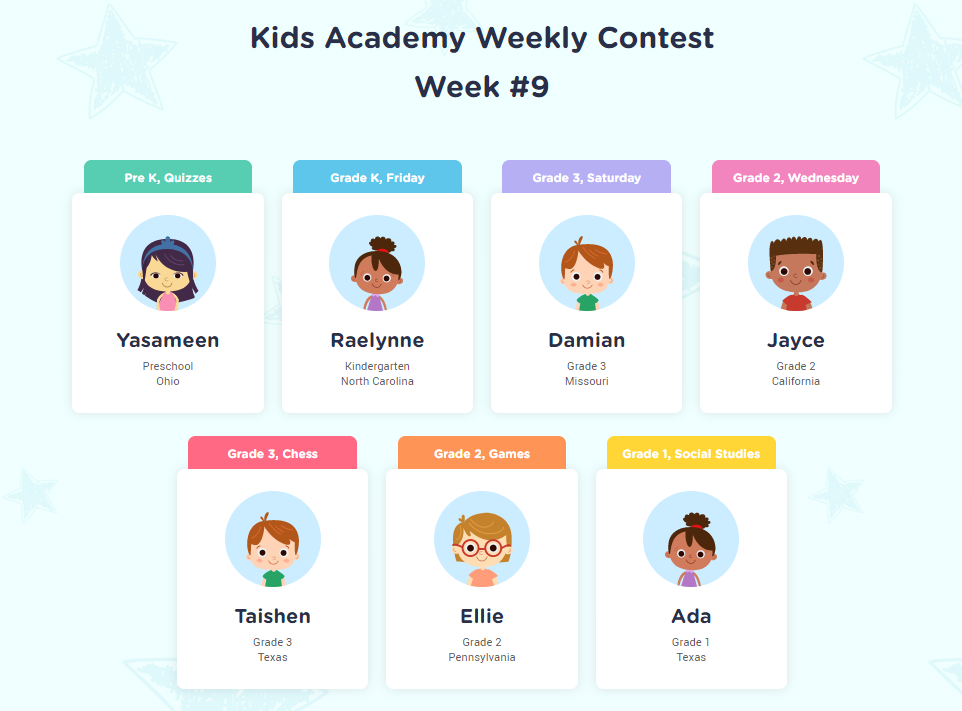Counting objects Worksheets for Ages 3-8
25 filtered results
-
From - To
Discover our engaging Counting Objects Worksheets tailored for children aged 3-8! Designed to enhance early numeracy skills, these printable activities provide a fun and interactive way for young learners to practice counting and recognize quantities. Each worksheet features colorful illustrations and varied objects to captivate young minds while reinforcing essential math concepts. Whether at home or in the classroom, our resources help develop foundational skills crucial for academic success. Explore our diverse collection today and watch your child become more confident in counting and understanding numbers. Perfect for parents and educators striving to create an effective learning environment!
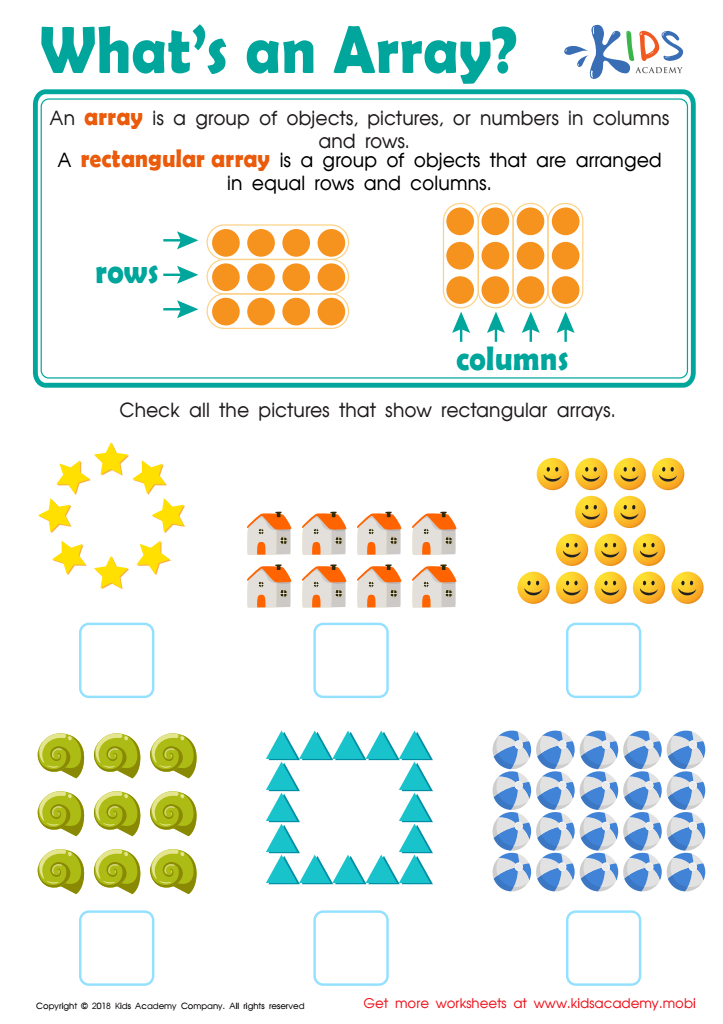

What's an Array? Worksheet
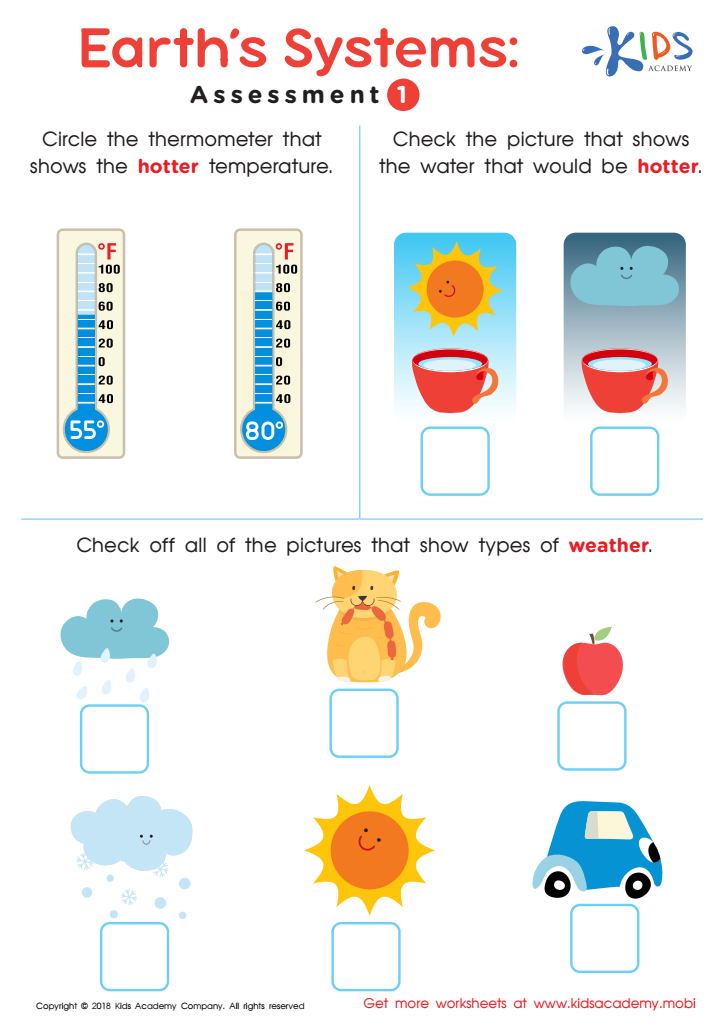

Earth's Systems: Assessment 1
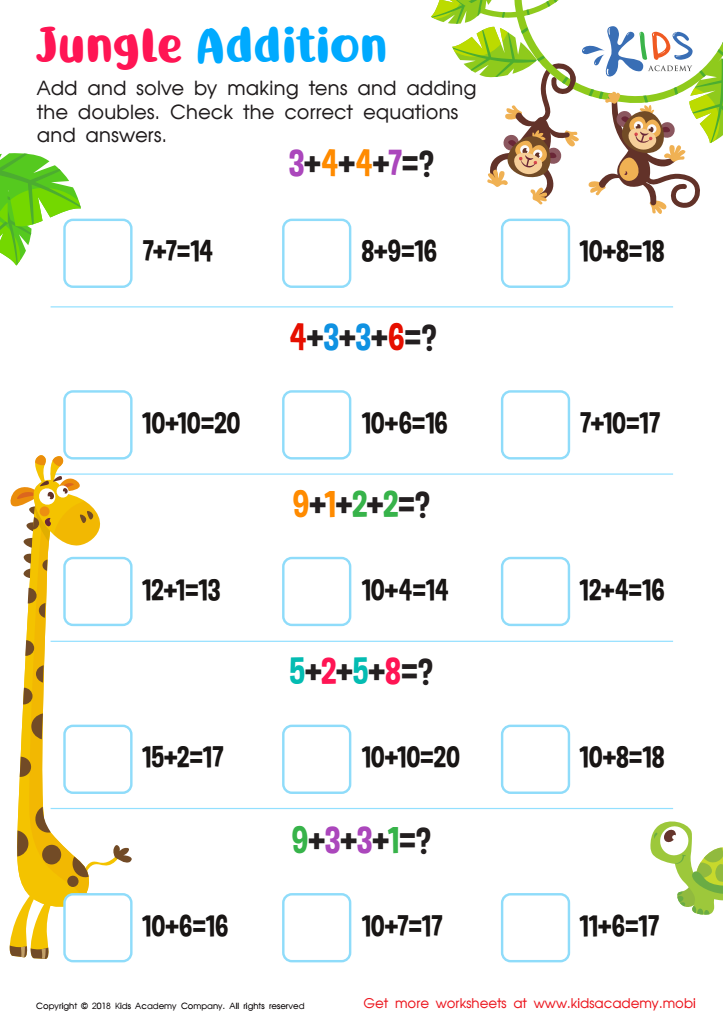

Jungle Addition Worksheet
Counting objects is a foundational skill crucial for children aged 3-8, influencing their cognitive development and academic success. This early mathematical concept fosters not only numeracy but also critical thinking and problem-solving skills. When children count objects, they learn to associate numbers with quantities, paving the way for future math concepts such as addition, subtraction, and even more complex operations.
Engaging children in counting activities enhances their language development as they learn to articulate numbers and understand numerical language. It also promotes fine motor skills through hands-on activities, like sorting and grouping objects. Additionally, counting teaches children to focus and follow sequences, helping build essential attention and listening skills.
Parents and teachers play a crucial role in this developmental stage, as children often model behaviors from adults. By incorporating counting into everyday activities—such as counting snacks, toys, or steps—adults create a rich learning environment. This fun, practical teaching approach reinforces kids’ confidence and fosters a love for learning.
In sum, counting is not just a math skill; it is a vital tool for overall development, equipping children with the ability to think logically and function effectively in their world. Thus, investing time in counting activities is essential for formative learning.
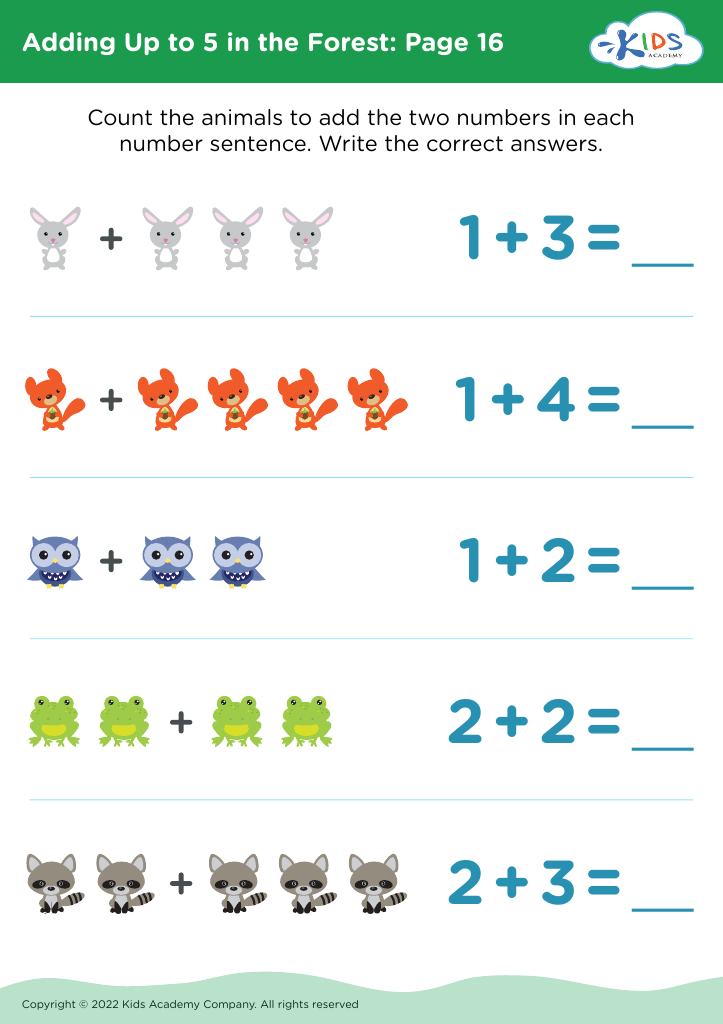
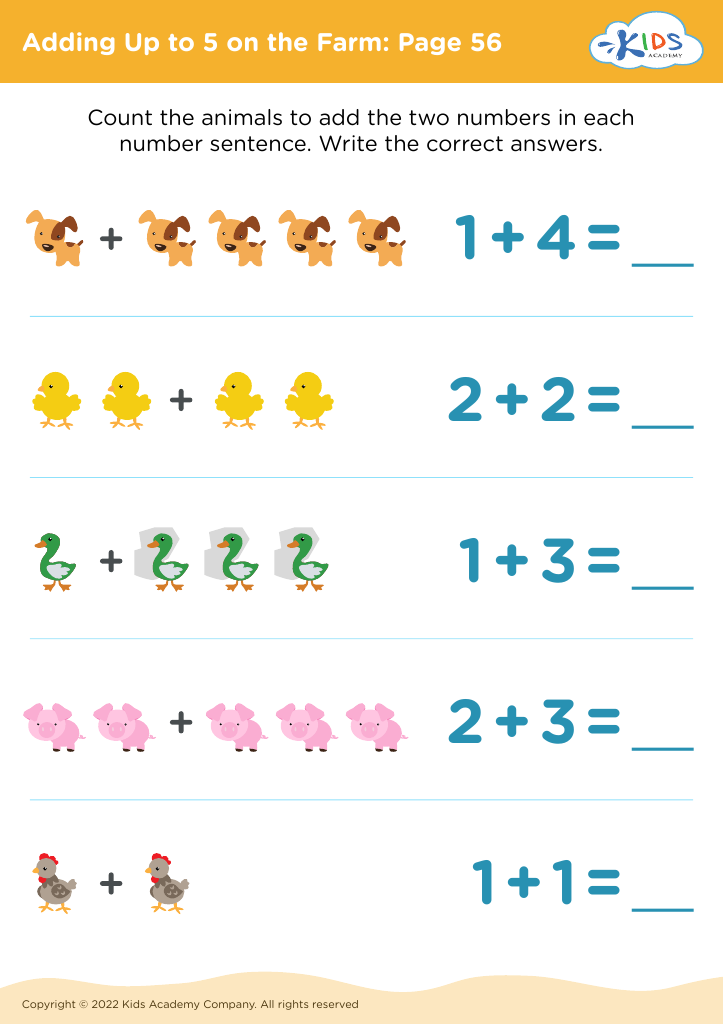

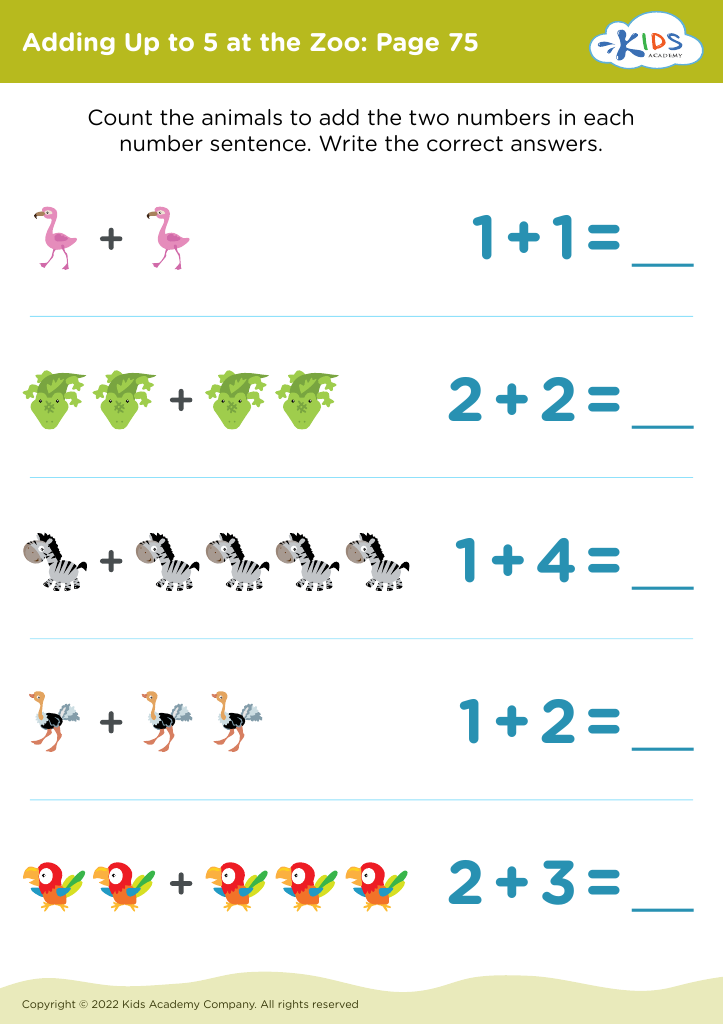

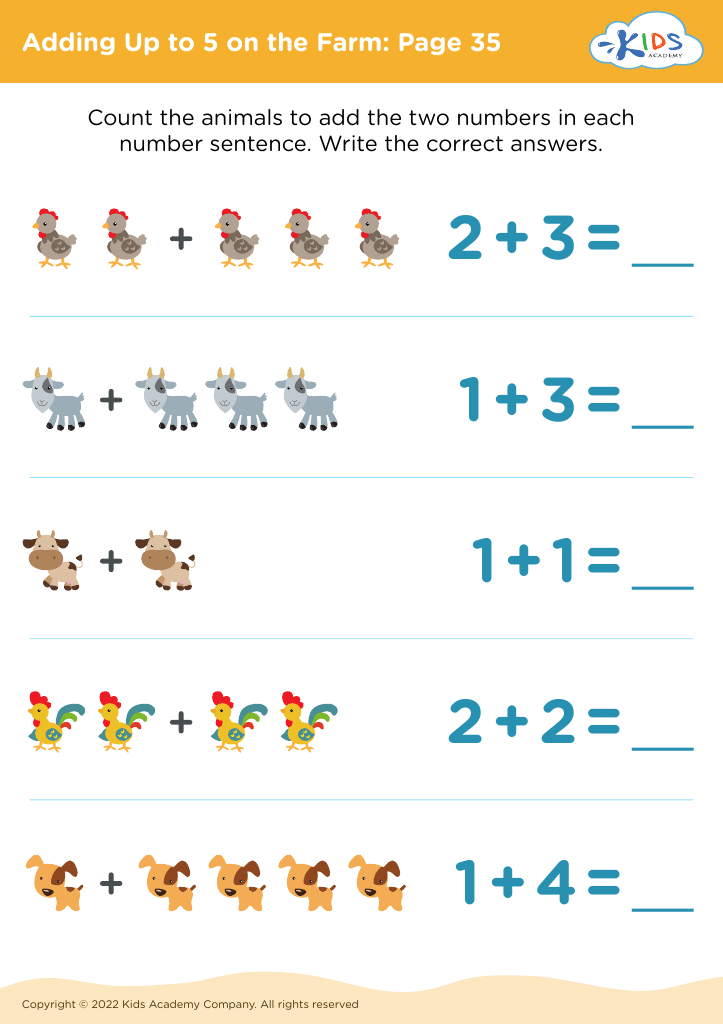

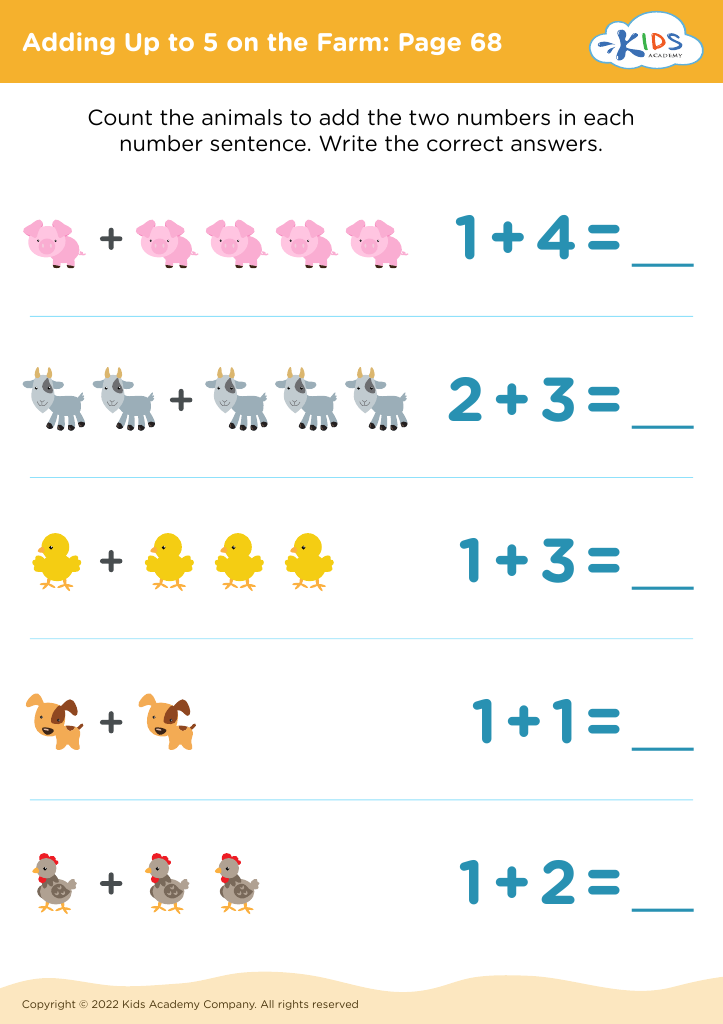

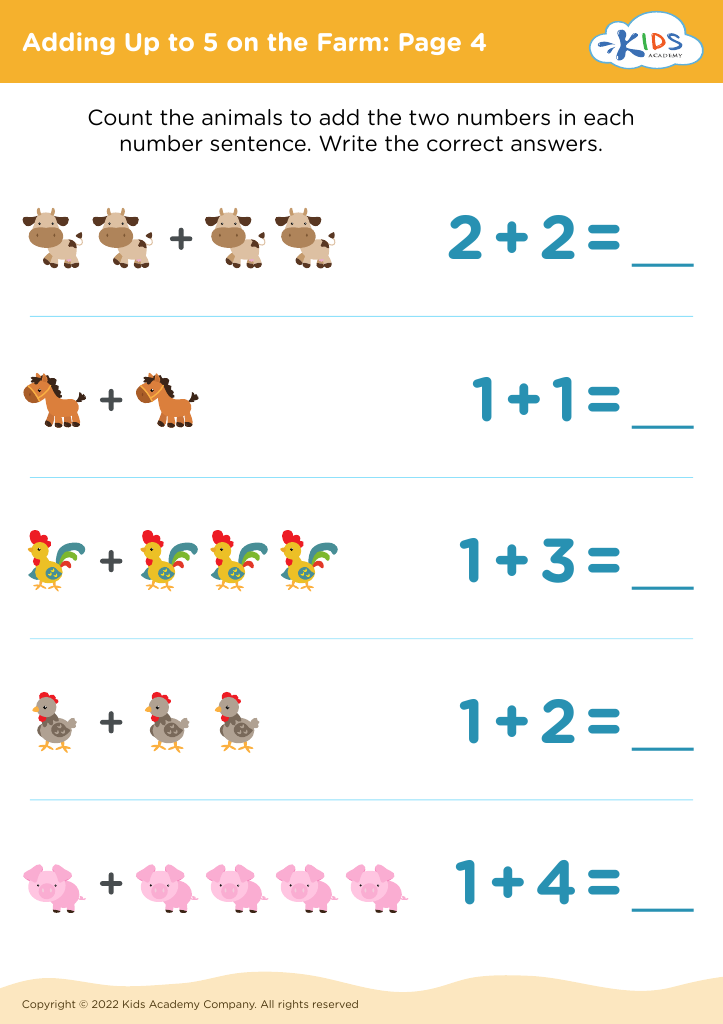
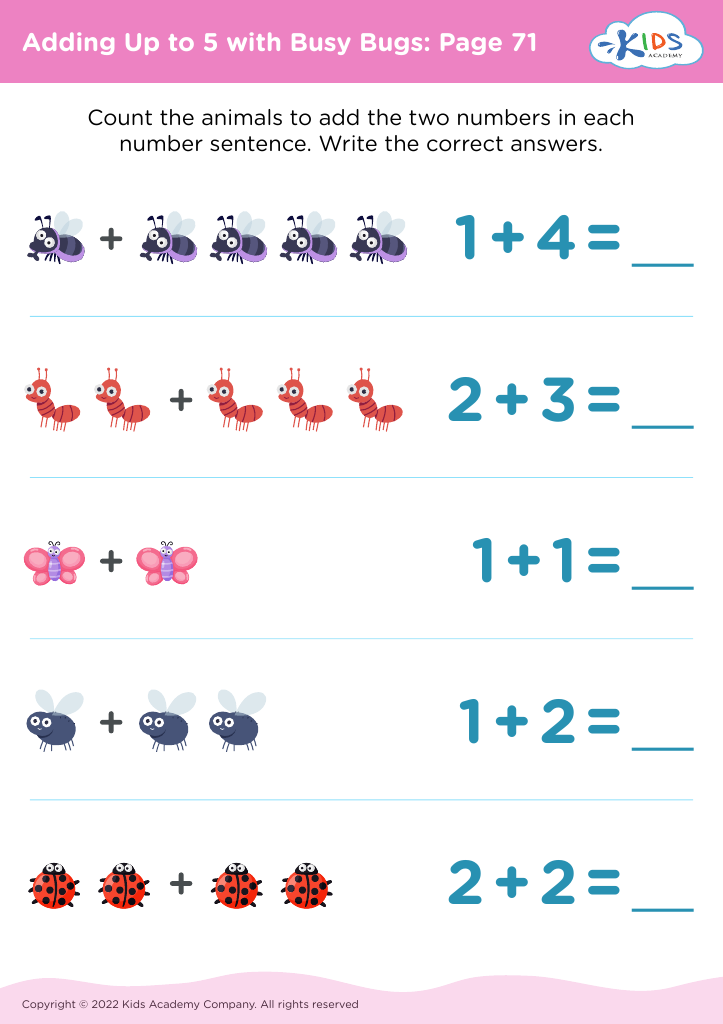
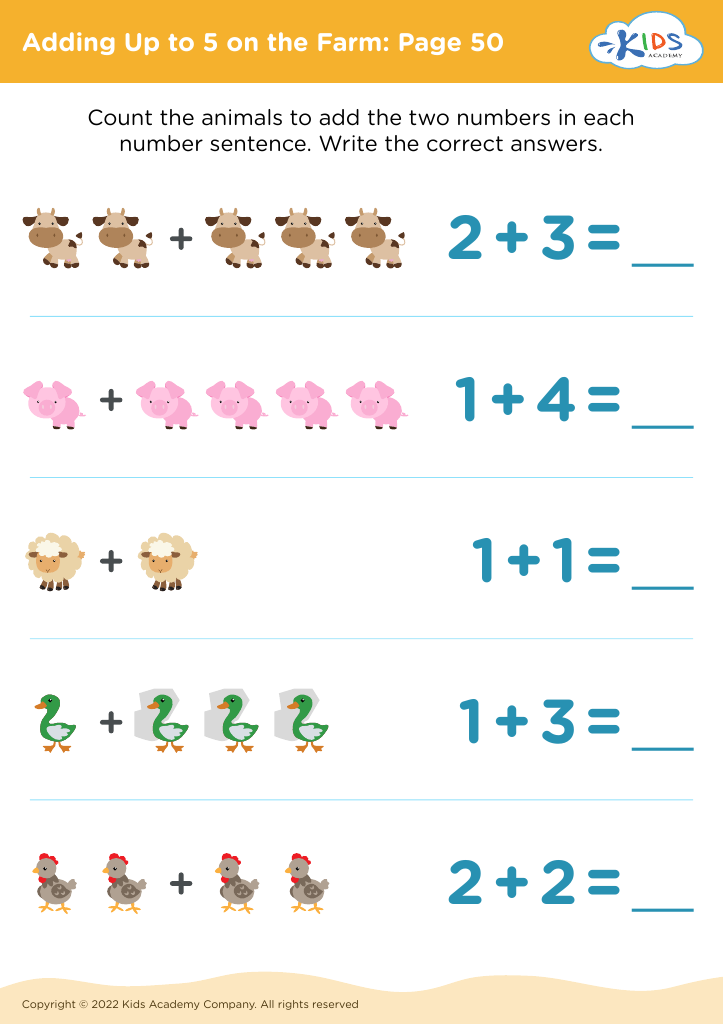
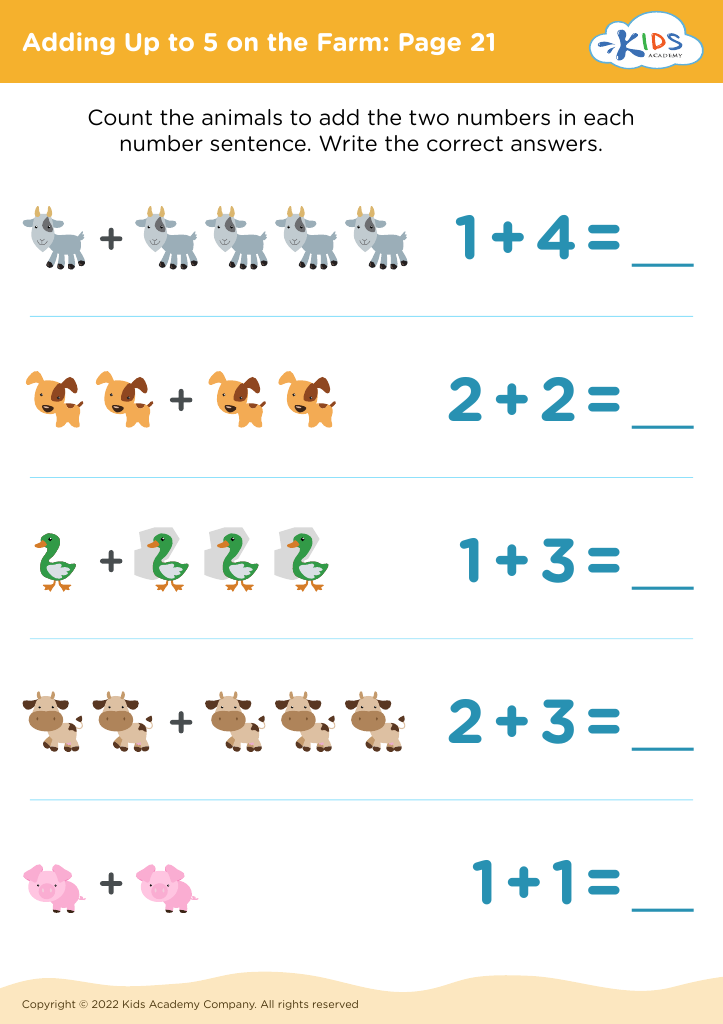

 Assign to My Students
Assign to My Students
